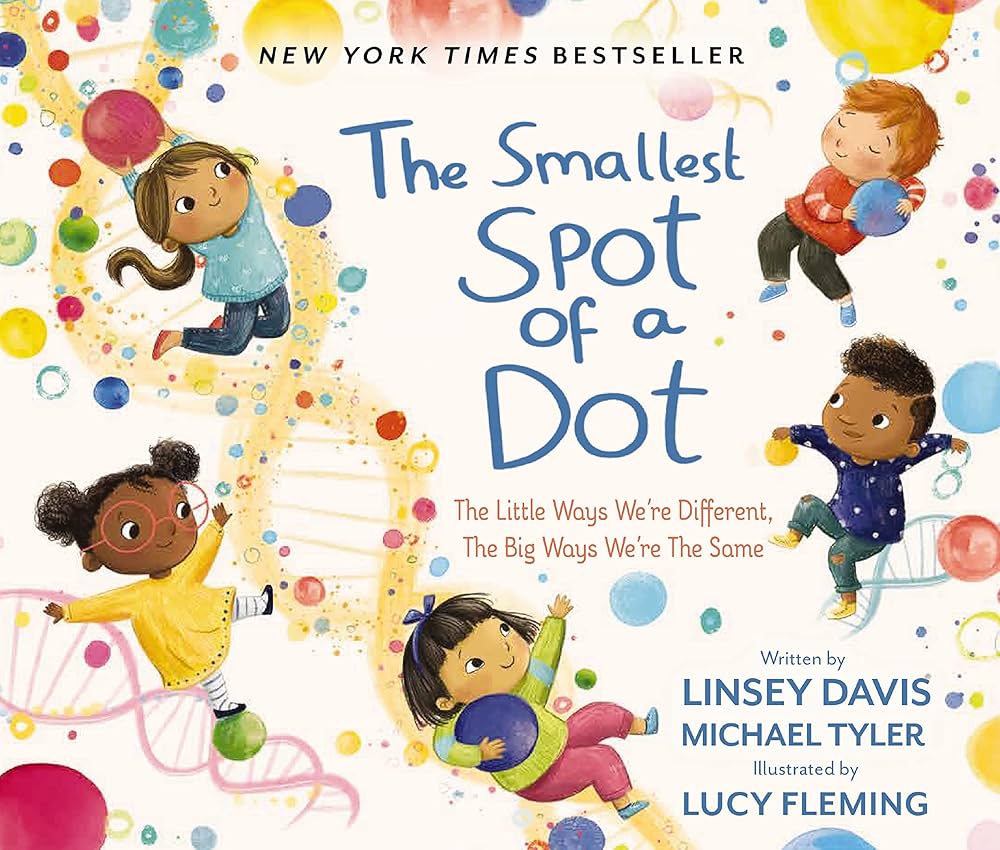
Art Form: Theatre
Supplies Needed
The Smallest Spot of a Dot book
Index cards or small pieces of paper
Pencil
Vocabulary
Character - A person in a story or play, or an animal or object that has human qualities
Scene - A part of a play or story that happens in one place for a continuous stretch of time
Improvise - To make it up as you go; to act without a script
Dialogue - The lines and speeches spoken by the characters in a story or play
Perspective - A way of looking at or thinking about something
Resolution - A solution to the problem, an agreement or development that ends the conflict or disagreement
Instructions
1. After reading through the book, look back through the book and choose one of the illustrations showing two characters that contrast each other. Talk about how the characters are different.
2. With a partner (or alone, using two different voices to represent the different characters) act out the characters discussing what makes them different from each other. Be sure to speak as though you are the character.
3. Write down a few topics on index cards or small pieces of paper that the characters might have different perspectives about. Fold the pieces of paper and mix them up on a table or the floor. Choose one; open it and read it aloud.
4. Improvise a way for the characters to reach a resolution about the topic. Again, use dialogue, speaking as though you are the character. Think about how resolution doesn’t always mean agreeing--the two characters could agree to disagree! The resolution is up to you!
Extensions
Write out your improvisation as a scene, showing what the characters say back and forth.
Improvise (with a little planning) a commercial as one of the characters trying to convince a larger audience of their viewpoint, including several reasons and details.

About
The REimagining and Accelerating Literacy through Arts Integration (REALAI) grant supports the literacy achievement of 3,200 students and 170 teachers, media specialists, and literacy coaches across six schools in Georgia and South Carolina.
In addition to professional learning for educators, this project contributes significantly to school library collections through the purchase of developmentally appropriate and culturally relevant books.
This grant also includes parent events to provide families with access to books and other content about how to support their child’s reading development.
